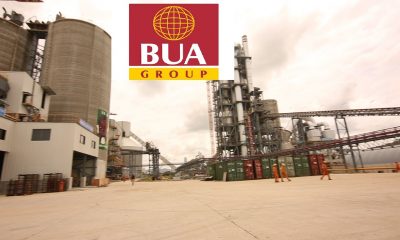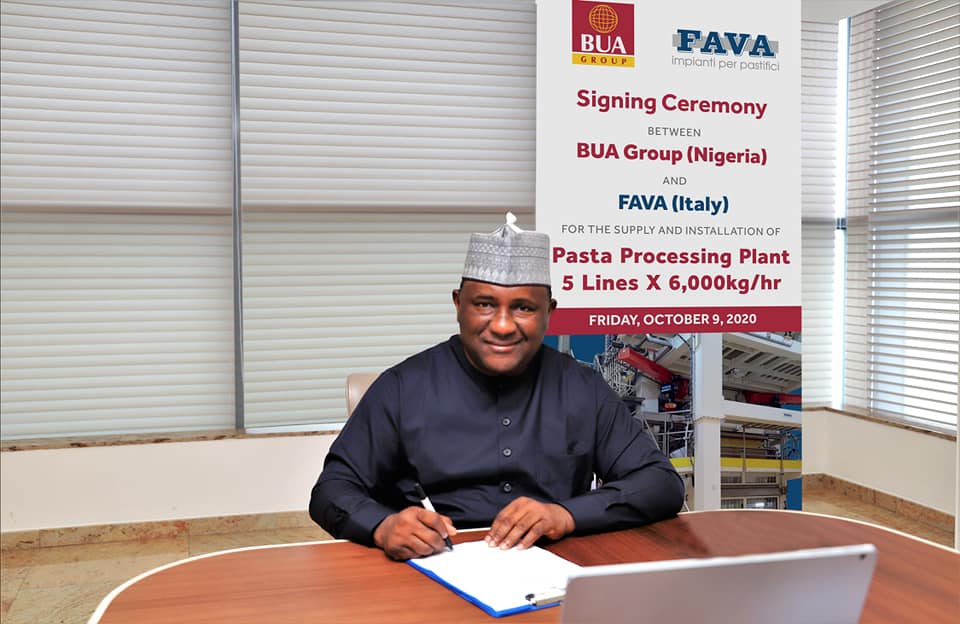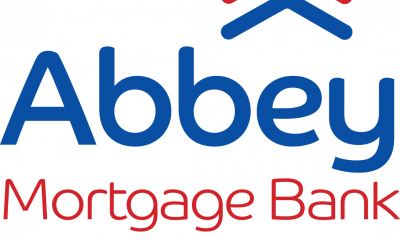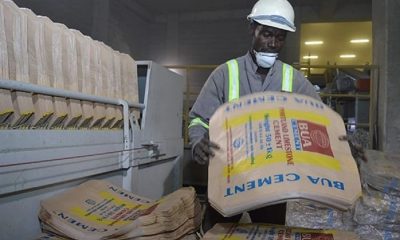Economy
BUA Cement Gets $500m for Two New Production Lines
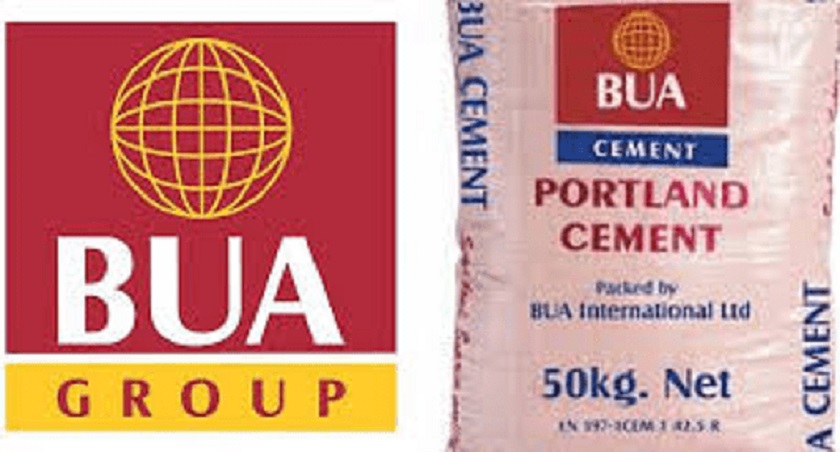
By Adedapo Adesanya
Nigeria’s second-largest cement producer, BUA Cement, has gotten a $500 million financing package from the International Finance Corporation (IFC) to develop two new production lines in Sokoto State.
In what is IFC’s largest-ever investment in northern Nigeria, the financing package, which saw input from African and European partners to BUA Cement Plc, will help the company part-finance and develop two new, energy-efficient cement production lines that will create up to 12,000 direct and indirect jobs.
The funding includes a $160.5 million loan from IFC’s account, a $94.5 million loan through the Managed Co-Lending Portfolio Program (MCPP), and $245 million in parallel loans from syndication partners; the African Development Bank (AfDB) – $100 million, the Africa Finance Corporation (AFC) – $100 million, and the German Investment Corporation, Deutsche Investitions- und Entwicklungsgesellschaft (DEG) – $45 million.
The financing was announced during the Africa CEO Forum in Abidjan, Cote d’Ivoire.
It was disclosed that the plants would run partly on alternative fuels derived from waste and solar power. Each will produce about three million tons of cement annually when complete, serving markets in Nigeria, Niger, and Burkina Faso.
Speaking on this, Mr Abdul Samad Rabiu, Chairman and Founder of BUA Group, said that “BUA is delighted to partner with IFC and other esteemed institutions in securing this $500 million facility to develop energy-efficient cement production capacity and strengthen our equipment and logistics capabilities in northern Nigeria.
“In line with our commitment to sustainability and ESG principles, this investment will create jobs and contribute to economic and infrastructural development within Nigeria and the greater Sahel region.
“We are particularly pleased to have successfully gone through the rigorous process with IFC, AfDB, AFC, and DEG, which validates our responsible business practices. By focusing on greener fuels and enhancing our equipment and logistics platform, BUA Cement is building a foundation for sustainable infrastructure growth and a more inclusive society,” he said.
“We are pleased to join with our partners to support BUA with an investment that will boost industrialization, create jobs and deliver economic growth in northern Nigeria, a region with significant economic potential,” said Mr Makhtar Diop, IFC’s Managing Director.
Investing in northern Nigeria is integral to IFC’s strategy to promote sustainable development in underserved regions. This includes areas with limited opportunities and a need for increased private-sector engagement.
The new plants will provide local developers with a reliable and affordable source of cement, and bolster the construction of essential infrastructure, fostering economic growth and prosperity for the region.
The project is expected to create about 1,000 direct jobs and 10,800 indirect jobs. Direct jobs include those in manufacturing, engineering, and advanced automation systems. Indirect jobs include those in the cleaning, maintenance, mining, and transportation sectors.
The financing package will also allow BUA to replace some of its diesel trucks with vehicles that are run partly on natural gas, over time producing fewer emissions. As part of the project, IFC will also advise BUA on developing a gender-inclusive workplace strategy that creates more opportunities for women across its operations.
“Following an initial $200 million investment in BUA Group in 2021, we are proud to play another key role in this landmark manufacturing project to transform northern Nigeria’s construction sector and the entire country. Investing in this project will sustainably build Nigeria’s local manufacturing capacity, empower local communities, and create employment opportunities. AFC is committed to working with our partners to accelerate development impact through infrastructure solutions that support value addition, industrialization, and job creation throughout Africa,” added Mr Samaila Zubairu, CEO & President of Africa Finance Corporation (AFC).
“The African Development Bank is pleased to be partnering with IFC and BUA on this expansion project as it is aligned with our priority strategies of industrializing Africa and improving the quality of lives of Africans through the increase in cement production, which will lead to the development of additional affordable housing and critical infrastructure in Nigeria and neighbouring West African countries while supporting the use of cleaner energy at BUA’s Sokoto facility,” said Mr Solomon Quaynor, Vice President of AfDB’s Private Sector, Infrastructure and Industrialization arm.
“DEG’s mission is to be a reliable partner to private sector enterprises as drivers of development and creators of qualified jobs. We are pleased to contribute to this transaction together with our development finance partner institutions. Together we support BUA in its transformation towards a more sustainable production by implementing innovative technology. The significant reduction of CO2 emissions and the creation of decent jobs in a region with many vulnerable households are key factors for DEG’s financing,” said Mr Gunnar Stork, Senior Director at DEG.
The investment in BUA is part of IFC’s strategy to promote diversified, inclusive growth and job creation in Nigeria, where IFC supports the manufacturing agribusiness, healthcare, infrastructure, technology, and financial services sectors. IFC has an active investment portfolio of $2.3 billion in Nigeria.
Economy
Naira Down Again at NAFEX, Trades N1,359/$1

By Adedapo Adesanya
The Naira further weakened against the Dollar in the Nigerian Autonomous Foreign Exchange Market (NAFEX) for the fourth straight session this week on Thursday, February 26.
At the official market yesterday, the Nigerian Naira lost N3.71 or 0.27 per cent to trade at N1,359.82/$1 compared with the previous session’s N1,356.11/$1.
In the same vein, the local currency depreciated against the Pound Sterling in the same market window on Thursday by N8.27 to close at N1,843.23/£1 versus Wednesday’s closing price of N1,834.96/£1, and against the Euro, it crashed by N8.30 to quote at N1,606.89/€1, in contrast to the midweek’s closing price of N1,598.59/€1.
But at the GTBank forex desk, the exchange rate of the Naira to the Dollar remained unchanged at N1,367/$1, and also at the parallel market, it maintained stability at N1,365/$1.
The continuation of the decline of the Nigerian currency is attributed to a surge in foreign payments that have outpaced the available Dollars in the FX market.
In a move to address the ongoing shortfall at the official window, the Central Bank of Nigeria (CBN) intervened by selling $100 million to banks and dealers on Tuesday.
However, the FX support failed to reverse the trend, though analysts see no cause for alarm, given that the authority recently mopped up foreign currency to achieve balance and it is still within the expected trading range of N1,350 and N1,450/$1.
As for the cryptocurrency market, major tokens posted losses over the last 24 hours as traders continued to de-risk alongside equities following Nvidia’s earnings-driven pullback, with Ripple (XRP) down by 2.7 per cent to $1.40, and Dogecoin (DOGE) down by 1.6 per cent to $0.0098.
Further, Litecoin (LTC) declined by 1.3 per cent to $55.87, Ethereum (ETH) slipped by 0.9 per cent to $2,036.89, Bitcoin (BTC) tumbled by 0.7 per cent to $67,708.21, Cardano (ADA) slumped by 0.6 per cent to $0.2924, and Solana (SOL) depreciated by 0.4 per cent to $87.22, while Binance Coin (BNB) gained 0.4 per cent to sell for $629.95, with the US Dollar Tether (USDT) and the US Dollar Coin (USDC) closing flat at $1.00 each.
Economy
Crude Oil Falls as Geopolitical Risk Around Iran Clouds Supply Outlook

By Adedapo Adesanya
Crude oil settled lower on Thursday as investors tracked developments in talks between the United States and Iran over the latter’s nuclear programme, weighing potential supply concerns if hostilities escalate.
Brent crude futures lost 10 cents or 0.14 per cent to close at $70.75 a barrel, while the US West Texas Intermediate (WTI) crude futures depreciated by 21 cents or 0.32 per cent to $65.21 a barrel.
The US and Iran held indirect talks in Geneva on Thursday over their long-running nuclear dispute to avert a conflict after US President Donald Trump ordered a military build-up in the region.
Prices had gained earlier in the session after media reports indicated the talks had stalled over US insistence on zero enrichment of uranium by Iran, as well as a demand for the delivery of all 60 per cent-enriched uranium to the US.
However, prices then retreated after the two countries extended talks into next week, reducing the immediate strike potential.
Iran’s Foreign Minister, who confirmed talks will continue next week, said Thursday’s talks were the most serious exchanges with the US yet, saying Iran clearly laid out its demand for lifting sanctions and the process for relief.
His counterpart from Oman, who is handling the talks, said significant progress was made in Thursday’s talks. The Omani minister’s upbeat assessment followed indirect talks between Iranian Foreign Minister and US envoys Steve Witkoff and Jared Kushner in Geneva, with one session in the morning and the second in the afternoon.
He will also hold talks with US Vice President JD Vance and other US officials in Washington on Friday.
The Trump administration has insisted that Iran’s ballistic missile program and its support for armed groups in the region must be part of the negotiations.
The American President said on February 19 that Iran must make a deal in 10 to 15 days, warning that “really bad things” would otherwise happen.
On Tuesday, he briefly laid out his case for a possible attack on Iran in his State of the Union speech, underlining that while he preferred a diplomatic solution, he would not allow Iran to obtain a nuclear weapon.
Meanwhile, the US continues to amass forces in the Middle Eastern region, with the military saying it is prepared to execute orders given by the US President.
Economy
Why Transparency Matters in Your Choice of a Financial Broker

Choosing a Forex broker is essentially picking a partner to hold the wallet. In 2026, the market is flooded with flashy ads promising massive leverage and “zero fees,” but most of that is just noise. Real transparency is becoming a rare commodity. It isn’t just a corporate buzzword; it’s the only way a trader can be sure they aren’t playing against a stacked deck. If a broker’s operations are a black box, the trader is flying blind, which is a guaranteed way to blow an account.
The Scam of “Zero Commissions”
The first place transparency falls apart is in the pricing. Many brokers scream about “zero commissions” to get people through the door, but they aren’t running a charity. If they aren’t charging a flat fee, they are almost certainly hiding their profit in bloated spreads or “slippage.” A trader might hit buy at one price and get filled at a significantly worse one without any explanation. This acts as a silent tax on every trade. A transparent broker doesn’t hide the bill; they provide a live, auditable breakdown of costs so the trader can actually calculate their edge.
The Conflict of Market Making
It is vital to know who is on the other side of the screen. Many brokers act as “Market Makers,” which is a polite way of saying they win when the trader loses. This creates a massive conflict of interest. There is little incentive for a broker to provide fast execution if a client’s profit hurts their own bottom line. A broker with nothing to hide is open about using an ECN or STP model, simply passing orders to the big banks and taking a small, visible fee. If a broker refuses to disclose their execution model, they are likely betting against their own clients.
Regulation as a Safety Net
Transparency is worthless without an actual watchdog. A broker that values its reputation leads with its licenses from heavy-hitters like the FCA or ASIC. They don’t bury their regulatory status in the fine print or hide behind “offshore” jurisdictions with zero oversight. More importantly, they provide proof that client funds are kept in segregated accounts. This ensures that if the broker goes bust, the money doesn’t go to their creditors—it stays with the trader. Without this level of openness, capital is essentially unprotected.
The Withdrawal Litmus Test
The ultimate test of a broker’s transparency is how they handle the exit. There are countless horror stories of traders growing an account only to find that “technical errors” or vague “bonus terms” prevent them from withdrawing their money. A legitimate broker has clear, public rules for getting funds out and doesn’t hide behind a wall of unreturned emails. If a platform makes it difficult to see the exit strategy, it’s a sign that the front door should have stayed closed.
Conclusion
In 2026, honesty is the most valuable feature a broker can offer. It is the foundation that allows a trader to focus on the charts instead of worrying if their stops are being hunted. Finding a partner with clear pricing, honest execution, and real regulation is the first trade that has to be won. Flashy marketing is easy to find, but transparency is what actually keeps a trader in the game for the long haul.
-

 Feature/OPED6 years ago
Feature/OPED6 years agoDavos was Different this year
-
Travel/Tourism10 years ago
Lagos Seals Western Lodge Hotel In Ikorodu
-

 Showbiz3 years ago
Showbiz3 years agoEstranged Lover Releases Videos of Empress Njamah Bathing
-

 Banking8 years ago
Banking8 years agoSort Codes of GTBank Branches in Nigeria
-

 Economy3 years ago
Economy3 years agoSubsidy Removal: CNG at N130 Per Litre Cheaper Than Petrol—IPMAN
-

 Banking3 years ago
Banking3 years agoSort Codes of UBA Branches in Nigeria
-

 Banking3 years ago
Banking3 years agoFirst Bank Announces Planned Downtime
-

 Sports3 years ago
Sports3 years agoHighest Paid Nigerian Footballer – How Much Do Nigerian Footballers Earn


